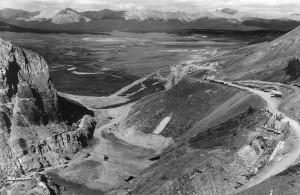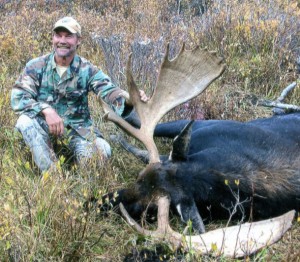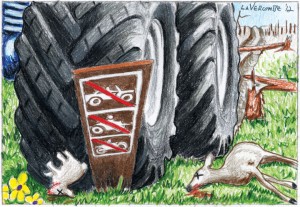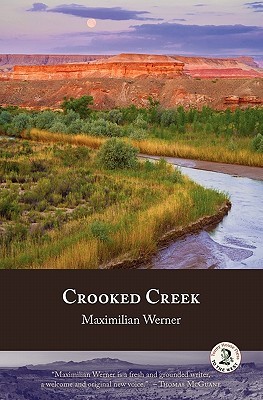Senator Gail Schwartz (D-Snowmass) was elected to represent Colorado’s Senate District 5 in 2006 and was re-elected in 2010. Previously, she was elected to serve on the Board of Regents of the University of Colorado from 2000 to 2005 and, before that, she was appointed by Gov. Roy Romer to the Colorado Commission on Higher Education from 1995 to 1999.
Colorado Central: Could you briefly explain SB12-048, the “Local Foods, Local Jobs Act” and how it will affect residents of Central Colorado? Where does the bill currently stand?
 Sen. Schwartz: In Mid-March the bill was signed into law! This is a “Cottage Foods Law” that allows local growers and bakers to prepare value-added products – jams, jellies, baked goods, dehydrated foods – in home kitchens and sell them directly to consumers on a local level. The intent of the law is to incubate entry-level opportunities for people to prepare and market their products without having to make a large investment in a commercial kitchen set-up or special licenses. This is a project that has been two years in the making, and grew out of a series of meetings with farmers and growers in Salida, Hotchkiss and Alamosa.
Sen. Schwartz: In Mid-March the bill was signed into law! This is a “Cottage Foods Law” that allows local growers and bakers to prepare value-added products – jams, jellies, baked goods, dehydrated foods – in home kitchens and sell them directly to consumers on a local level. The intent of the law is to incubate entry-level opportunities for people to prepare and market their products without having to make a large investment in a commercial kitchen set-up or special licenses. This is a project that has been two years in the making, and grew out of a series of meetings with farmers and growers in Salida, Hotchkiss and Alamosa.
Colorado Central: Tell us a little about the Forest Health & Biomass Bill.
Sen. Schwartz: Last year’s bill, SB11-267, set up a forest health working group to provide a spectrum of recommendations to support the timber industry in development of sustainable harvesting practices, promoting healthy forest management and woody biomass energy development. This group’s findings are presented on the Colorado State Forest Service website:www.csfs.colostate.edu/pages/sb11-267.html) This year’s bill will implement many of the recommendations identified in the working group’s report.
Colorado Central: As you know, access to broadband internet is critical for rural education, business opportunities and job growth. You are working to improve access through SB 129, the “Rural Broadband Jobs Act.” What would that bill do and what is its status?
Sen. Schwartz: That bill is waiting for a third reading in the Senate. It sets up a working group to investigate the status of broadband connectivity in rural areas of the state and develop a strategic plan for improvement. Currently, local planning teams made up of business, elected officials and other community leaders are working with the state Office of Information Technology, using federal dollars to map out connectivity accessibility around the state. Once that is done, the big question will be: where will the funds come from to invest in this critical infrastructure in our rural communities?
Colorado Central: Solar Reserve is proposing to construct a “power tower” in Saguache County near Center. The height of the proposed tower is more than 600 feet and the entire project would cover about 4,000 acres. While the project is considered to be renewable, there are concerns about the impact it would have upon the historic heritage of the San Luis Valley, the viewscape, wildlife and water consumption. What are your thoughts on the project?
Sen. Schwartz: I’m pleased to see the level of solar energy development in the San Luis Valley and I continue to do work on the Saguache project. I am waiting to see what the county commissioners and the community decide before I give my opinion on the subject, as I feel my role is not to interfere with local determination and local process. When there are projects in front of communities throughout the District, like Over the River for example, I prefer to wait and allow the process to unfold locally before I weigh in.
Colorado Central: Oil and gas development continues to boom in rural Colorado. What would you say to your constituents who have concerns about it?
Sen. Schwartz: Oil and gas extraction hasn’t really impacted the constituents in District 5, partly because not a whole lot of oil and gas development is going on in the district, with some exceptions in the San Luis Valley, and the North Fork Valley in Delta County. I recognize significant concern about the proposed BLM oil and gas leases. In Hotchkiss in late January, I helped facilitate a hearing that over 500 people attended, and 100 people testified about their concerns about the impact of oil and gas development on their economy, their land, and their way of life. However, oil and gas extraction is going to become a bigger issue for the state as a whole because of industry innovations for the extraction processes allowing access to resources that were previously inaccessible. More people are going to be concerned about the quality of their air and water, and we must make sure that the Colorado Oil and Gas Commission is involved in protecting people and resources locally.
Colorado Central: You are supporting greater awareness of the importance of electronics recycling. What are some of the things you are working on to help rural areas improve efforts to keep those toxic materials out of landfills and waterways?
Sen. Schwartz: SB12 -133, my bill on this issue, has passed the Senate and has nearly passed the House. The basis of the bill is a statewide ban on dumping electronics in landfills. (Just to give you an example of how toxic electronics can be, an old TV could have up to 40 lbs of lead in it!). Recycling these components will keep our ground water and land safe and cuts down on resource waste. Jobs will come from “resource recovery,” since the bill requires the state to use certified recyclers. There will be education programs for the public, and certified recyclers can come to local communities. BlueStar is one of the recyclers that will be coming to local communities – it’s a great company that has a policy of hiring disabled workers and providing well-paying jobs.
Colorado Central: Lately, women’s access to birth control, abortion, and health care in general seems to be under increasing attack on the state level, including in Colorado. As a woman and a legislator, could you please comment on this trend?
Sen. Schwartz: It’s unfortunate that there is considerable focus on women’s reproductive rights and access to health care right now, when we need to be looking at education, local economies, and supporting our families. I am struggling with why there is this need to control women’s access to health care and I don’t think government should be involved in this battle. Do we really need to revisit women’s rights that have been established for decades? Dwelling on this issue doesn’t create a single job, and it’s not my priority.
Colorado Central: What do you think of term limits for state representatives, and whether you think they have helped or hindered the democratic process in Colorado?
Sen. Schwartz: In a way, we already have term limits – they are called “elections.” People always have a chance to replace their representatives. I have seen what it takes to really understand the issues and gain momentum in the Legislature – but because of term limits you see a lot of expertise walk out the door. Term limits also lend more power to lobbyists- because of the time crunch to come up to speed as a legislator, legislators often turn to the lobby to understand the issues. I don’t mean to criticize lobbyists, but over-reliance on their opinion and expertise is an issue to take seriously.
Colorado Central: Redistricting impacted your district quite a bit with Senate District 5 losing six counties, all of which were in the San Luis Valley; Saguache, Mineral, Alamosa, Rio Grande, Conejos, and Costilla counties. Gained were Lake and Eagle counties. What do you say to those in the district who are concerned that the rural issues of Chaffee, Gunnison, Hindsdale, Lake and Delta counties now will be over shadowed the wealth and larger population bases of Eagle and Pitkin counties?
Sen. Schwartz: I’m sorry to be losing the counties of the San Luis Valley in District 5, as I spent so much time there to becoming familiar with the local issues and priorities. But, as a result of that, now they’ll have “two senators!” I will always be concerned with issues in the San Luis Valley. Glad to see Eagles and Lake Counties coming in – I focus on issues all these counties have in common: we all want good jobs, good schools and protection of natural resources. I prefer to focus on our commonalities, not our differences.
Colorado Central: In early March you held some townhall meetings across Central Colorado. What were some of the common themes constituents discussed and what are you doing to address them?
Sen. Schwartz: I just had one last weekend in Alamosa. The issue of Adams State College changing its name came up, as it did in Gunnison with Western State College, and what the name change means to each of the local communities. Provisions for veterans is always an issue around the District, and broadband connectivity is also a common theme for schools and hospitals in each community in particular. This issue of connectivity started for me back in 2007 and led to my involvement with numerous Broadband bills including this year’s bill, SB12-129, the Rural Broadband Jobs Act.
Colorado Central: You have three daughters. Have any of them shown interest in a career in public service?
Sen. Schwartz: They are happy that there are term limits! I want to thank them and my husband, for they have been supportive and engaged every step of the way – but I have cured my daughters of any desire to ever serve in public office. Give them time to recover and they may think differently, but for now, no!
Colorado Central: Read any good books lately?
Sen. Schwartz: As I will be reading nearly 700 bills and the supportive material – I don’t have time for books! I’ve been part of a book group for over 25 years, and it is one of my greatest pleasures, when I get time to read!
Editors note: Special thanks to Elliot Jackson for conducting and transcribing this interview with Sen. Schwartz.






